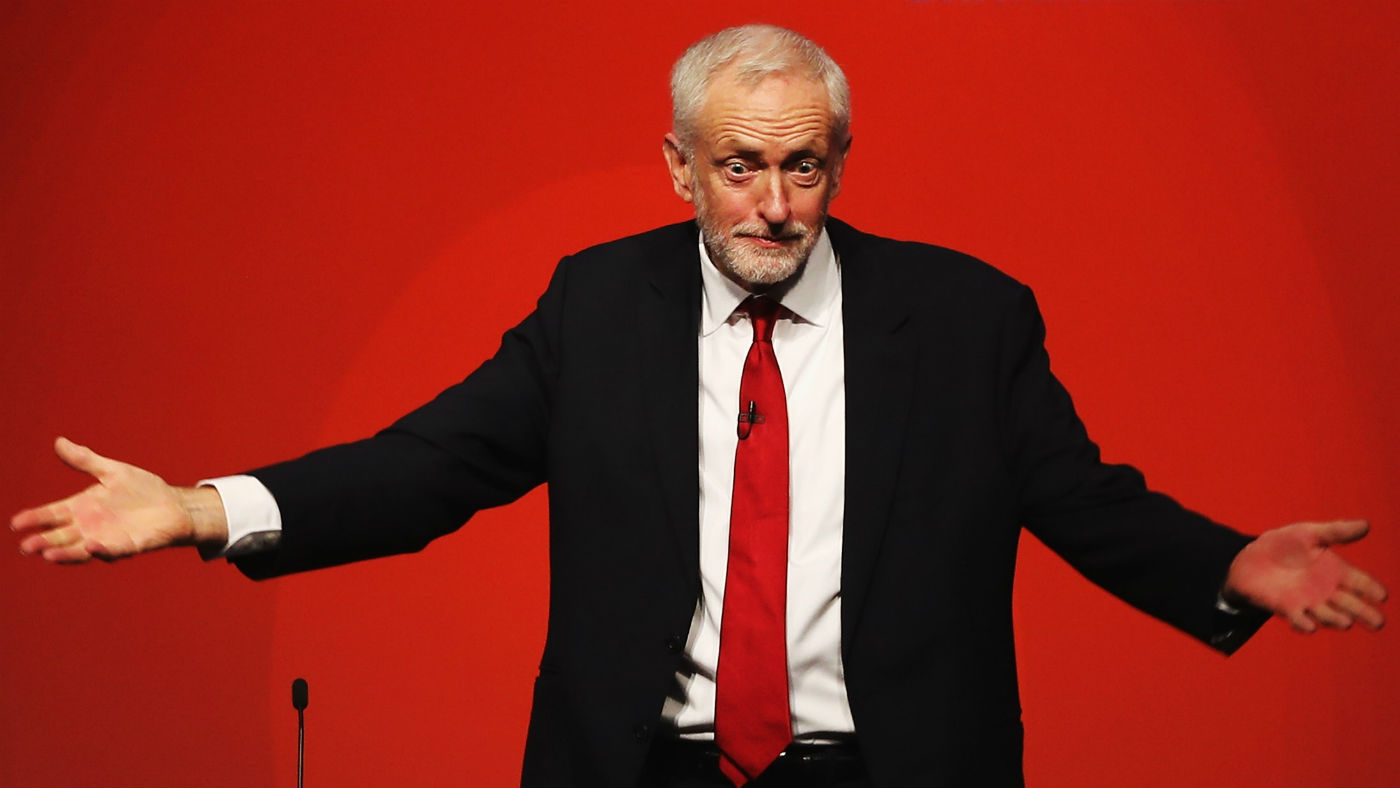Has Jeremy Corbyn killed off Chequers?
In vowing to vote down deal, Labour would create insurmountable parliamentary majority against prime minister’s Brexit plan

A free daily email with the biggest news stories of the day – and the best features from TheWeek.com
You are now subscribed
Your newsletter sign-up was successful
Labour’s commitment to vote against Theresa May’s Chequers deal when it comes up before MPs in November means the prime minister faces an almost impossible task getting her flagship Brexit legislation through parliament.
Speaking to a packed hall at the Labour party conference in Liverpool, Jeremy Corbyn said: “As it stands, Labour will vote against the Chequers plan or whatever is left of it and oppose leaving the EU with no deal”.
With the Lib Dems, SNP and, crucially, a cabal of hardline Brexiteers likely to vote against Chequers, Corbyn’s conference declaration “increases the chance of May not being able to get a final Brexit deal through parliament” says The Guardian, while Reuters reports it leaves Downing Street’s plans “hanging by a threat”.
The Week
Escape your echo chamber. Get the facts behind the news, plus analysis from multiple perspectives.

Sign up for The Week's Free Newsletters
From our morning news briefing to a weekly Good News Newsletter, get the best of The Week delivered directly to your inbox.
From our morning news briefing to a weekly Good News Newsletter, get the best of The Week delivered directly to your inbox.
The parliamentary arithmetic looks grim for the prime minister. Having squandered her majority in last year’s disastrous general election, May is maintained in power by the 10 Democratic Union Party members from Northern Ireland.
While this gives her a wafer thing majority in the House, it is not enough to insulate her if, as expected, roughly 40 or so Tory MPs who make up the Eurosceptic European Research Group reject her compromise Brexit proposal.
Even the four or five pro-Brexit Labour MPs who May could look too would likely be cancelled out by a small group of ultra-Remain Tories such as the veteran Europhile Ken Clarke and Anna Soubry.
“It won’t take many hardcore rebels to join forces with Labour and other opposition parties and crush May’s fragile majority” says Politico, adding “there are plenty of observers who believe such a defeat would spell the immediate end for [Theresa May’s] premiership”.
A free daily email with the biggest news stories of the day – and the best features from TheWeek.com
The big question, though, is whether the likes of Jacob Rees-Mogg, Boris Johnson and David Davis could bring themsleves to vote against the prime minister and with Labour, and risk the possibility of an early election and, potentially, a Corbyn government.
Last week, The Times’ policy editor Oliver Wright reported that hardline Conservative Brexiteers are struggling to persuade their colleagues to support their open defiance of Theresa May’s Chequers plan.
“Amid divisions on the right of the party over the approach to take to Chequers, a number of Brexit supporting backbenchers have distanced themselves from the hardline position being taken by the ERG” Wright writes, “while several predicted the scale of opposition to any eventual deal would be far smaller than [now] predicted”.
Fear of Corbyn in Number 10 has long been assumed to trump all other considerations among Tory MPs. It is yet to be seen whether it will be enough to frighten the most die-hard Brexiteers into falling in line, holding their noses and voting through the Chequers deal.